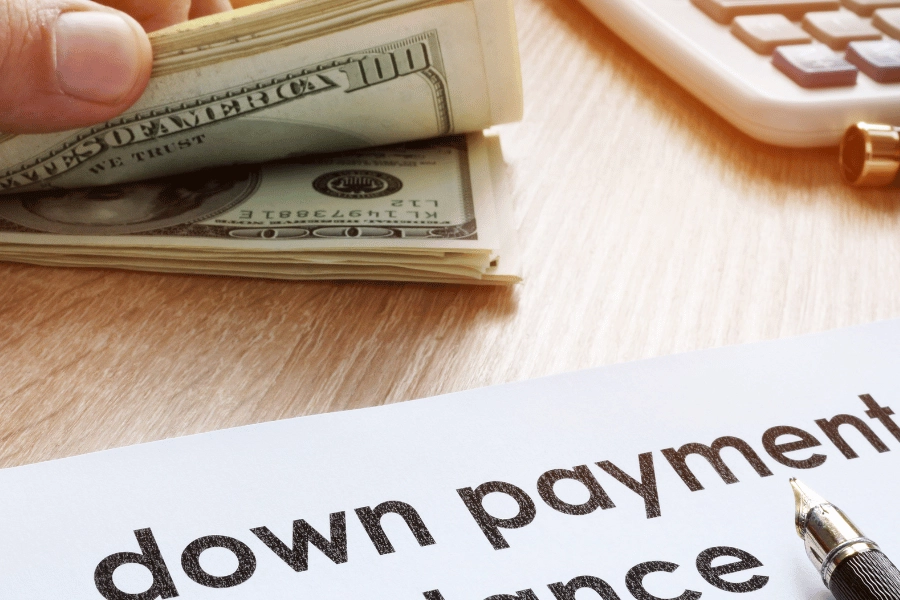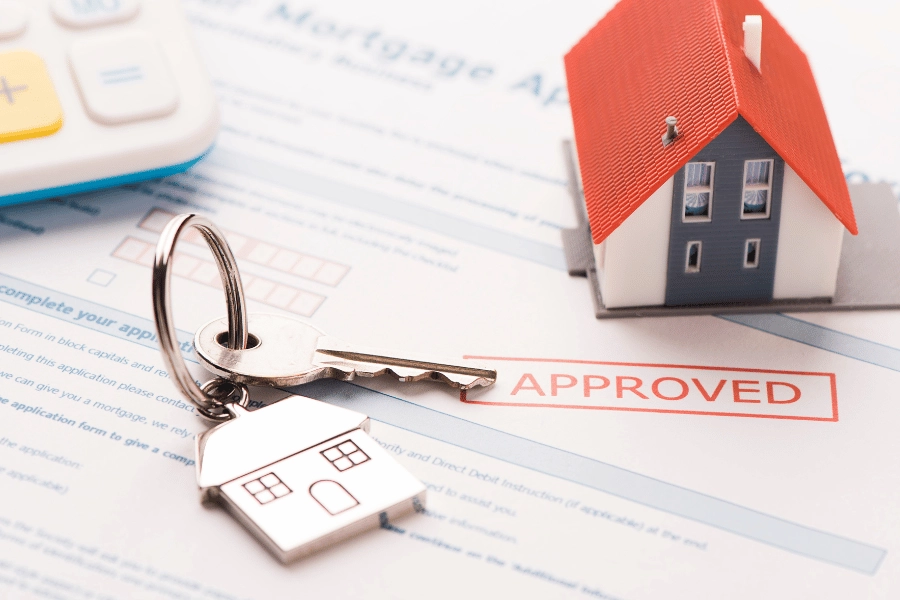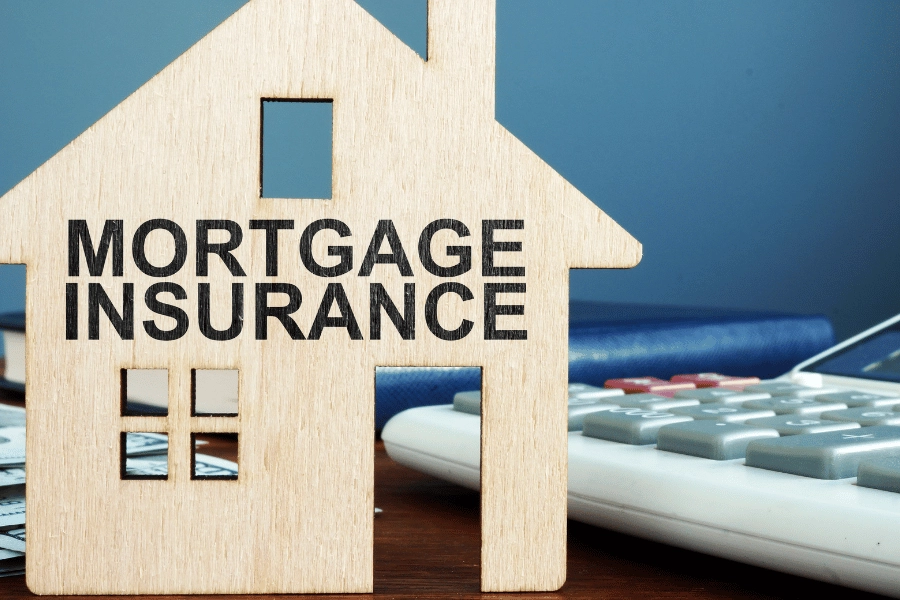Questions to Ask Your Mortgage Lender
Are you wondering what essential questions to ask your mortgage lender? Here are some questions to consider that can help you stay ahead and obtain the answers you need to choose the right option for you.
When you are applying for a mortgage, especially if you are a first-time homeowner, you will likely have many questions for your lender. Certain questions are important, so understanding the right things to ask will significantly impact your experience.
Before meeting with a loan officer representing a mortgage lender, it is smart to come prepared and know what you want to get out of the convo. You will want to cover a variety of topics. Before you go into this, you need to know your budget and financial standing.
For most people, taking on a mortgage will be the biggest financial commitment of their lives. Many decisions go into finding the right loan, and the best way to feel equipped to navigate the process is to ask the right questions. Keep reading to learn more about some questions to ask.
Here are questions to ask your mortgage lender.
1. What Types of Mortgage Loans Do You Offer?
There are many different types of mortgages, and sometimes, it can surprise you that there are many types that better suit your needs. Asking what types of mortgage loans they offer is one of the most important questions because this is the base of what you need.

Lenders usually help you navigate and apply for the following standard loan types:
Conventional Loans:
There are several types of conventional loans, but because any government agency doesn't back them, they are harder to qualify for. Applicants typically need a credit score of 620 or higher and a down payment of at least 20%.
FHA Loans:
Insured by the Federal Housing Administration (FHA), these loans allow borrowers to qualify with as little as a 3.5% down payment and a credit score of as low as 580.
VA Loans:
Military members may qualify for a VA loan if they served long enough to earn VA entitlement. No down payment or mortgage insurance is required and there is no set minimum credit score to qualify. However, VA borrowers typically pay a VA funding fee between 0.5% and 3.6%.
USDA Loans:
The U.S. Department of Agriculture (USDA) offers home loans to help low to moderate-income families purchase homes in rural areas. No down payment is required, and the loan term can extend past 30 years. Credit scores of roughly 640 are needed, though other qualifying factors may be considered.
2. What Repayment Terms Do You Offer?
Repayment terms are the length of time you can repay a loan and the rates and fees tied to the loan you're applying for. In both cases, the repayment terms will have a major impact on the cost of your loan repayment, so it is important to know upfront.
- Fixed-Rate Mortgage: This type of mortgage has a set interest rate that's determined when you take out your loan. The rate principal and interest payment will not change.
- Adjustable-Rate Mortgage (ARM): The interest rate on an ARM loan can change over time at set intervals. These loans often start at a lower initial rate than fixed loans, but the rate adjusts once the low-rate period ends.
- 15-Year vs. 30-Year Mortgage: A 30-year repayment term is common for most buyers because it provides the lowest monthly payment. A 15-year mortgage can be a good option for those who can afford a higher monthly payment.
Here are the differences between fixed and adjustable mortgages to get a better understanding.
3. What Type of Lender Are You?
If you are not applying for a mortgage at your bank, you will want to ask this question. Most lenders will either be mortgage bankers, mortgage brokers, or retail banks. Understanding what lender they are will help you choose the right one for you.
Mortgage bankers handle the processing of your loan, which means they have an in-house staff that works on your loan at every step. They are often approved to offer down payment assistance programs, and you'll make your payment to them in most cases after your loan closes.
Mortgage brokers are the middlemen between you and various lenders. They usually give you access to more loan products than a single mortgage banker can offer. They do not actually approve your loan, and you won't make payments to them because your loan actually closes in the name of the mortgage bank.
Institutional and retail banks are usually standard brick neighborhood banks where you might have your checking account, safety deposit box, and access to credit card and personal loan products.

4. Do You Charge Any Upfront/Unrefundable Fees?
This should be one of the most important questions you ask. While it is not uncommon to pay a fee for a credit report if you're getting a mortgage preapproval, you should never be charged a fee to have a loan estimate prepared or get guidance on the best loan for your situation.
Although your loan estimate is an important document for you to view, it also contains important details like repayment terms, interest rates, and closing costs, and it may indicate whether you will pay any fees.
Do not hesitate to review the documents with a loan officer to confirm that you understand the terms you are approving. Ask any questions to understand better before you sign off on anything.
5. What is the Minimum Down Payment Requirement?

While you might believe that a 20% down payment is necessary, the reality is that many mortgages are significantly less. When you are meeting with lenders, you should ask about the specific down payment requirements for the loan you're considering. Even if it is less than expected.
Be aware of the down payment needed, which helps you plan your finances accordingly. Asking beforehand will help you set saving goals and be prepared for this investment required to purchase a home.
6. What Are Your Credit Requirements?
Your credit score is one of the biggest factors that lenders use when reviewing your mortgage application and determining your interest rate. Generally speaking, the higher your score is, the more likely you are to get approved and secure a better rate.
Each lender and loan type has its own minimum credit score requirements so it is important to ask about the criteria when you are meeting with them. If your credit score is not high enough for the loan you want, you can take steps to improve.
It is essential to ask your lender the right questions about credit score requirements and rates. Do not be afraid to ask any questions; they are there to help.
7. Do You Offer Prequalification and Preapproval?
For people looking to purchase a home, the mortgage prequalification process gives you an idea of what you might qualify for when you apply. Many lenders offer prequalification without running the credit check, so asking what their prequalifications are will help you jump-start the process.
When you are ready to start house hunting, you need to get preapproved. While preapproval isn't a commitment to lend, it is a good indication that you will get the loan in time, so knowing the steps will help with the process.
If you have any questions, ask your mortgage lender for preapproval, including how the process works or what happens after you are preapproved.

8. What is My Interest Rate?
This is one of the most popular questions. It's the one benchmark we all understand. Lenders can move the needle on your mortgage interest rate in a number of ways, some of which can involve additional fees.
After talking to at least a couple of lenders, you will better understand what interest rate you qualify for. Knowing the ballpark interest rate, you will be able to move on to the next step and more questions to help you decide what loan fits your needs.
9. What is the Annual Percentage Rate?
After you have an idea of your payment rate, it is important to find out your annual percentage rate (APR). APR incorporates all the loan's embedded fees.
Make sure to ask your lender if any discount points are included in your APR. Asking multiple lenders will help you later decide which best suits your preferences.
If you are planning on buying your forever home, you need to understand all the rates and everything that goes into them. Discount points may seem like a confusing concept so if you do not understand what that means for you, make sure to ask.
10. Will I Have to Pay Mortgage Insurance?
If you put down less than 20% on a conventional loan, the answer to this question will probably be yes. Mortgage insurance on government-backed loans works differently, so understanding each type is important.
Even if the mortgage insurance is lender-paid, it is likely passed on as a cost built into your mortgage payment, which increases your rate and monthly payment. You will want to know how much mortgage insurance will cost, as well as any upfront costs.

11. How Much House Can I Comfortably Afford?
While being prequalified or preapproved may help you ballpark the top end of your home-buying budget, it doesn't mean you should start shopping for homes at the upper end of what you can afford.
You do not want to end up spending so much on your mortgage payment every month that you can't save for unforeseen expenses. Asking how much you can afford ahead of time will not only help you understand what you can afford but also help you save and not get blindsided.
Methodology
We created this guide using information from various sources and our own data on questions to ask your mortgage lender.
We used the following sources to gather most of our information on questions you should ask your mortgage lender.
FAQS
What questions should I ask my lender?
You should consider asking your lender some key questions, such as " What loan options do you offer?" "Do I qualify for any special programs?" "What is the interest rate on the loan?" and many more.
What is the golden rule of mortgage?
The rule of 28 states that your monthly payment should not exceed 28% of your gross monthly income. This is considered the golden rule, and many lenders abide by it, so if you are deciding if it is the right one for you, ask them.
What not to say to a mortgage lender?
When you talk to a mortgage lender, you should never be untruthful, ask how much you can borrow, forget to pay the bill, check out new credit cards, or change jobs. Lenders are there to help you out, so be honest and make it easy for both of you.
Questions to Ask Your Mortgage Lender - The Bottom Line
One of the hardest things about buying a home is choosing a mortgage and a lender. The number of lenders and loan options can seem overwhelming for first-time home buyers, and it is not always easy to know which one is right for them.
Being upfront with your financial situation gives lenders a chance to answer your questions in a way that will help you find the right loan. Providing full details and asking the right questions will only help you in this process, so do not feel afraid to ask.
If you are considering moving or selling, contact us or visit our website. Our team at Raleigh Realty is here to help you with any home buying or selling needs.



